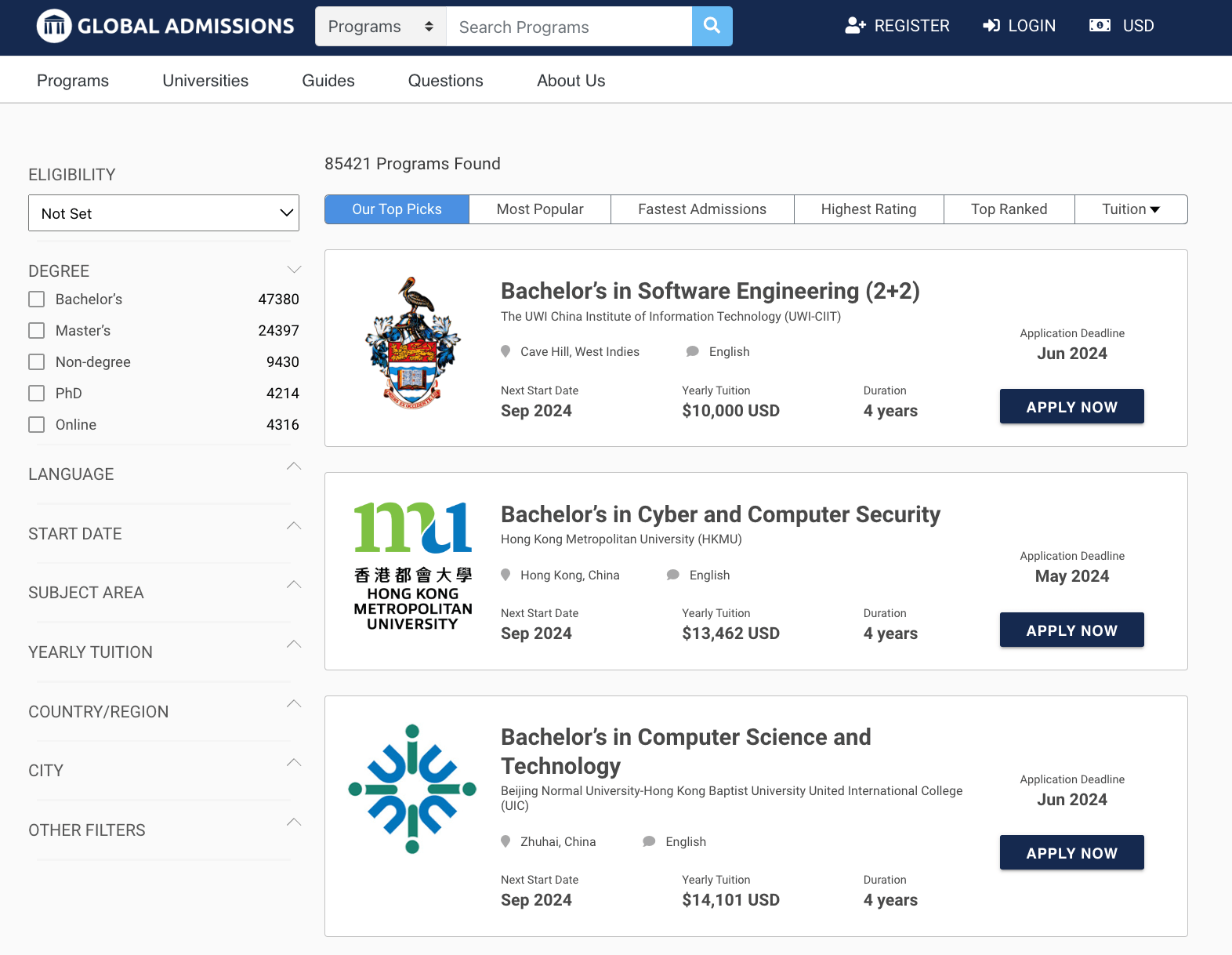In an era where the competition for attracting students is fiercer than ever, universities need innovative and effective marketing strategies to stand out. One such strategy is leveraging the power of digital platforms like Global Admissions.
Here’s how universities can harness this platform and other digital tools to enhance their global reach and appeal.
10. Virtual Campus Tours
The pandemic has accelerated the adoption of virtual tours, and they continue to be a powerful tool for universities. A well-crafted virtual tour can give prospective students a feel of the campus life, facilities, and atmosphere without having to travel. Integrating these tours into Global Admissions can provide a seamless experience for students exploring their options.
9. Content Marketing
Content is king, and this holds true for university marketing as well. Creating engaging and informative content about the university, its programs, achievements, and student life can attract attention. This content can be disseminated through blogs, social media, newsletters, and Global Admissions, ensuring it reaches a wide audience.
8. Social Media Strategy
Social media platforms are indispensable for reaching out to the younger demographic. Universities should have a robust social media strategy, showcasing campus life, events, student achievements, and more. Engaging with prospective students through these platforms can build a sense of community even before they enroll.
7. Webinars and Virtual Events
Hosting webinars and virtual events on topics of interest can attract prospective students and provide them with valuable information. These events can be promoted through Global Admissions, social media, and email marketing, ensuring a wide reach.
6. Alumni Testimonials
Prospective students often look to alumni experiences to gauge the quality of education and opportunities provided by the university. Featuring alumni testimonials on Global Admissions and other marketing channels can build credibility and trust.
5. Collaborations and Partnerships
Collaborating with other educational institutions, industry partners, and influencers can expand the university’s reach. These partnerships can be highlighted on Global Admissions to showcase the university’s network and opportunities for students.
4. SEO Optimization
Ensuring the university’s website and Global Admissions profile are optimized for search engines is crucial. This ensures that when prospective students search for relevant programs or universities, your institution appears at the top of the search results.
3. Email Marketing
A targeted email marketing campaign can keep prospective students engaged and informed about the university’s offerings, events, and application deadlines. Personalized emails based on the interests and preferences of the students can make a significant impact.
2. Analytics and Feedback
Finally, it’s important to analyze the effectiveness of the marketing strategies and make data-driven decisions. Feedback from prospective students can provide insights into what works and what needs improvement.
In conclusion, promoting a university in the digital age requires a multi-faceted approach,
1. Embracing Global Admissions
Global Admissions is a platform that connects universities with prospective students from around the world. By featuring their programs on this platform, universities can tap into a vast pool of international applicants, increasing their visibility and diversity. It’s not just about listing programs; it’s about showcasing the unique aspects of the university and what sets it apart from others.
You can list your programs or book a call on Global Admissions platform here.

Learn More
To learn more about promoting universities effectively consider the following steps:
- Explore Global Admissions: Start by visiting the Global Admissions platform and exploring its features. Understand how the platform connects universities with prospective students and what tools it offers for promotion.
- Webinars and Workshops: Attend webinars and workshops focused on higher education marketing. Many of these sessions cover the latest trends and strategies.
- Online Courses: Enroll in online courses that specialize in digital marketing for higher education. Platforms like Coursera, Udemy, and LinkedIn Learning offer courses that can provide valuable insights into effective university promotion.
- Industry Blogs and Publications: Follow blogs and publications dedicated to higher education marketing. Websites like Inside Higher Ed, The Chronicle of Higher Education, and University Business often feature articles on marketing strategies and case studies.
- Networking: Join professional networks and online communities related to higher education marketing. Platforms like LinkedIn have groups where professionals share their experiences and tips.
- Case Studies: Study case studies of universities that have successfully promoted themselves on Global Admissions and other platforms. Analyzing what worked for them can provide practical insights.
- Consult with Experts: Consider consulting with marketing experts or agencies that specialize in higher education. They can offer tailored advice and strategies for using Global Admissions effectively.
- Feedback and Surveys: Collect feedback from current and prospective students about their preferences and experiences with university promotion channels. This can help you refine your strategies.
- Continual Learning: Stay updated with the latest trends and changes in the field of higher education marketing. The landscape is constantly evolving, and what works today might not work tomorrow.
- Experimentation: Don’t be afraid to experiment with different strategies and tools. Tracking the results and learning from them is key to finding what works best for your university.

